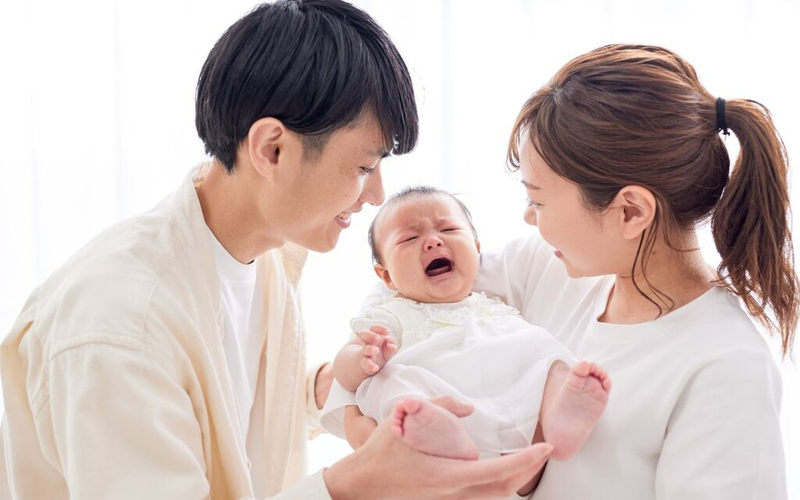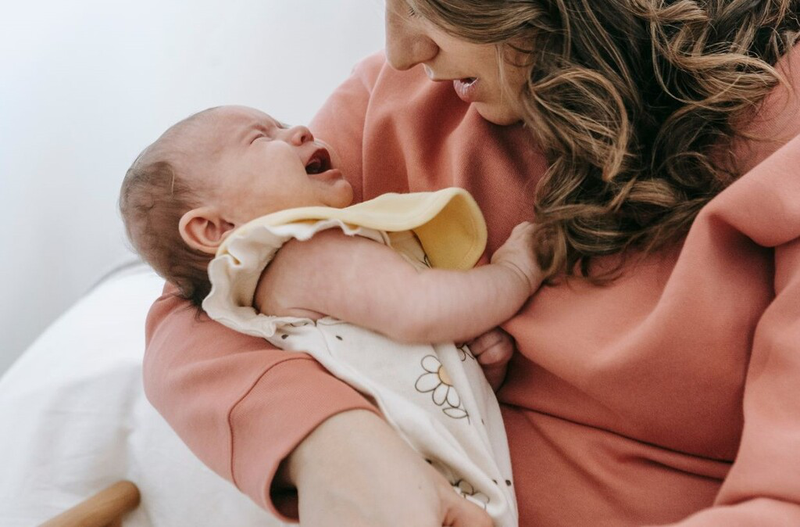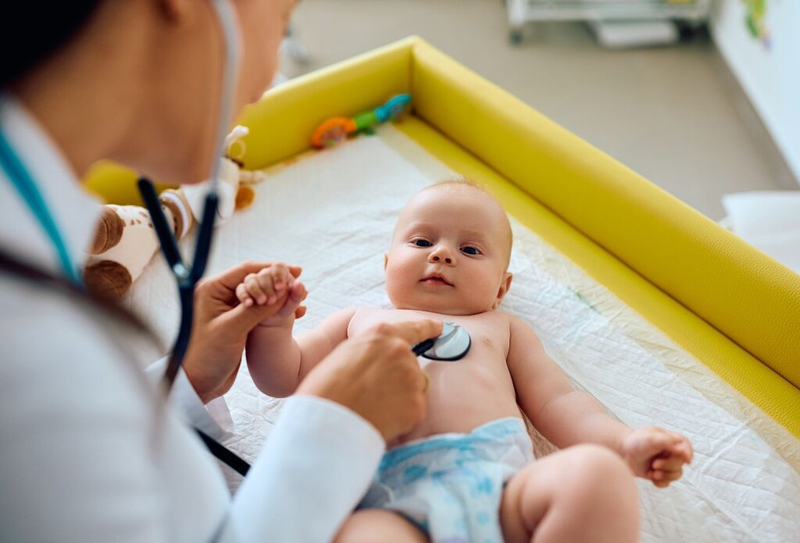Hiccups in infants are quite common. However, many parents are still confused about how to help their children stop hiccups. In today’s health article, we will guide you on how to cure hiccups in infants as quickly as possible.
How to cure hiccups in newborns? What is the fastest way to cure hiccups in newborns? Surely not all parents can answer this question. Understanding that, the article below will suggest to parents the fastest and most effective way to cure hiccups in newborns.
Some fastest ways to cure hiccups in newborns
In reality, although hiccups are a common condition in newborns, not all parents know how to cure hiccups in newborns. So what is the fastest way to cure hiccups in newborns?
Breastfeeding
Breastfeeding can effectively reduce hiccups in babies. When the baby sucks, the process of swallowing milk can help soothe the diaphragm, reducing uncontrolled contractions that cause hiccups. This can help the baby’s diaphragm return to normal and stop hiccups.
Especially in the first 6 months of life, breast milk is the main source of nutrition for babies. In addition to providing nutrients, breast milk also provides enough water for the baby, which helps maintain balance in the body and reduces problems related to hiccups. Some notes when breastfeeding to avoid hiccups include:
- Let the baby breastfeed slowly, do not let the baby breastfeed too quickly because swallowing milk quickly can cause the baby to swallow a lot of air, causing hiccups.
- After each feeding, help the baby burp to reduce the amount of gas in the stomach. This can help limit hiccups caused by excess gas in the stomach.
- If possible, breastfeed the baby directly from the mother to minimize the possibility of the baby swallowing air from the bottle.

Breastfeeding is one of the fastest and most effective ways to cure hiccups in infants.
Rubbing your baby’s back
Rubbing your baby’s back is also an effective way to help your baby relieve hiccups. When your baby hiccups, one of the main causes may be air trapped in the stomach. Rubbing your baby’s back helps your baby burp and release some of the air, thereby reducing hiccups. Mothers should do this gently and patiently to make your baby feel comfortable.
Distract your baby
Distracting your baby is an effective way to help your baby forget about hiccups and reduce discomfort. When your baby is preoccupied with an interesting toy or when you play with him, his attention will be diverted, helping his body relax and making the hiccups go away naturally. Giving your baby a pacifier can also help your baby feel comfortable and forget about hiccups. The important thing is that you need to be patient and create a comfortable space for your baby during this process.
Changing the baby’s feeding position
In addition to the above methods to cure hiccups in newborns, changing the baby’s feeding position can help reduce hiccups very effectively. When feeding, if the mother adjusts the baby’s position to lie on its side or tilts its head, this helps reduce pressure on the stomach and diaphragm, thereby limiting hiccups after feeding.
After feeding, keeping the baby sitting upright for about 15 minutes helps the baby digest better and reduces the possibility of hiccups. Gently rubbing the back after feeding is also a great way to help the baby burp, releasing excess air in the stomach, thereby reducing hiccups.

Distracting your baby helps them forget about the hiccups and feel less uncomfortable.
Causes of hiccups in infants
Infants often hiccup for many reasons related to the development and functioning of the body, especially the digestive system and diaphragm. Specifically, some common causes of hiccups in infants include:
- Overfeeding: When the baby feeds too much, the baby’s stomach will be stretched and put pressure on the diaphragm, thereby stimulating and causing hiccups.
- Swallowing air: When the baby is bottle-fed, the baby sucks too quickly or incorrectly, which can swallow a lot of air. This strains the diaphragm and leads to hiccups.
- Allergies and diseases: Some infants may be allergic to proteins in breast milk or formula or are allergic to foods that the mother eats. These factors can affect the baby’s digestive system and cause hiccups. In addition, asthma problems or air pollution can also stimulate the diaphragm and cause hiccups.
- Changes in environmental temperature: Sudden changes in environmental temperature can cause cold air to enter the baby’s lungs, stimulating the diaphragm and causing hiccups.
- Gastroesophageal reflux: Newborns may experience gastroesophageal reflux due to their immature digestive system. This can irritate the diaphragm and lead to hiccups.
According to experts, hiccups in newborns are usually a normal physiological phenomenon and will go away on their own after a while. However, if hiccups persist or are accompanied by other symptoms such as discomfort, vomiting or refusal to feed, parents should consult a doctor to rule out pathological causes.

Swallowing air may be the cause of hiccups in infants.
Things to know when a newborn baby hiccups
To ensure the safety of a newborn baby when hiccuping, parents need to pay attention to the following issues:
- Handling hiccups for babies needs to be gentle and careful, avoiding making the baby panic or encountering any other problems. Mothers also need to avoid methods that can be dangerous such as pulling the baby’s tongue or startling the baby.
- When a baby hiccups, it is very important to keep the baby relaxed and not startle the baby. Startling or shaking can make the baby more stressed and prolong the hiccups. Mothers should let the baby rest in a comfortable position, avoid moving vigorously or changing positions suddenly, helping the baby feel safe and easily overcome the hiccups. This also helps the baby feel more comfortable, thereby reducing the hiccups.
- Additionally, if hiccups persist and do not improve, it is important to discuss them with your pediatrician to rule out underlying causes and ensure your baby’s health.

Take your child to see a doctor if hiccups persist.
Above are some of the fastest ways to cure hiccups in infants that we have compiled to share with our readers. Hopefully, the above information will help parents gain more useful knowledge and be able to handle the situation effectively for their babies if they unfortunately encounter hiccups.





